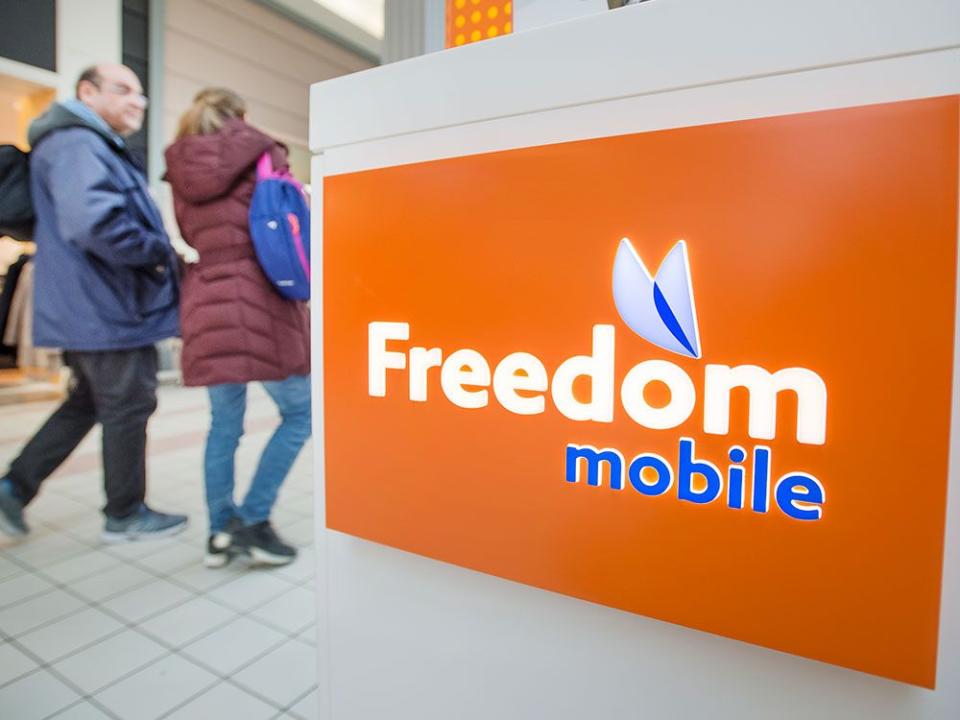Selling Freedom Mobile to Quebecor would lead to lower prices for consumers, analyst argues

As Rogers Communications Inc. approaches a face-off with Competition Bureau officials to try to complete a $26-billion merger with rival Shaw Communications Inc., one Bay Street analyst says there’s a compelling case to allow the pair to hive off Shaw’s wireless unit Freedom Mobile to Quebecor.
In a note to clients, Scotiabank analyst Maher Yaghi says Quebecor’s subsidiary Vidéotron, already established as a wireless player in its home market of Quebec with some of the lowest prices in the country, is likely to bring down consumer prices in Ontario, British Columbia and Alberta if it picks up Freedom. What’s more, removing Shaw as a “maverick” player shouldn’t be a concern because Quebecor/Vidéotron will take its place.
“We believe that, if QBR (Quebecor) is allowed to buy Freedom Mobile, this price discrepancy could close with prices across Canada heading towards the lowest common denominator,” Yaghi wrote, noting that the Quebec telco is likely to unleash its Fizz brand alongside Freedom, “attacking the middle and lower end” of the market. Adding an internet product through a re-selling arrangement would give the upstart a “bundle” to compete with major players Rogers, Telus Corp. and BCE’s Inc.’s Bell, he added.
The Competition Bureau objected to the Rogers-Shaw merger, forcing it before the Competition Tribunal, after concluding that allowing the two telco giants to merge would lessen wireless competition and raise prices for consumers.
A hearing before the Competition Tribunal is set to begin Nov. 7, though Rogers has been hopeful it can resolve the issues through mediation in late October. Previous mediation efforts were unsuccessful.
Innovation, Science and Economic Development Canada, which must also approve the merger and divestiture of Freedom Mobile, has yet to weigh in. However, the establishment of a viable fourth wireless player to compete with Rogers, Telus and Bell has been a priority of the federal government for years.
Yaghi says if Quebecor is successful in acquiring Freedom Mobile, it is likely to outpace the progress made by Calgary-based Shaw since acquiring the assets in 2016, based on a head start and the tactics employed to win share in its home market.
Shaw has grown to around five per cent market share in B.C. and Alberta, and about 10 per cent in Ontario, the analyst said. Quebecor, meanwhile, established a 22 per cent share of the wireless market in Quebec, where the company launched an aggressive campaign to lower prices.
“We don’t see why QBR could not, long term, achieve a 15 per cent market share in those provinces given the company’s strong experience in customer service, discounting and marketing insights,” he wrote.
Yaghi said the “remedy” of selling Freedom Mobile to Quebecor for $2.85 billion should not be compared to the 2020 merger in the United States of T-Mobile and Sprint Corp., which involved selling some of the incumbents’ telco assets to DISH.
Rather than creating a “merger-induced entrant” as some have characterized DISH, with the implication that not enough benefit was brought to consumers, “ we view QBR (Quebecor) as an already well-established competitor and with the means to induce strong competition,” the analyst wrote.
What’s more, he said, combining the wireless assets of Quebecor and Shaw “should allow for better economies of scale for a fourth player.”
This is crucial because new wireless entrants in Canada receive lower monthly revenues per subscriber while spending close to twice as much as incumbents on capital expenditures per subscriber.
Rogers’ $26-billion merger with Shaw could close this year, says CEO
Rogers has its work cut out for it in outage aftermath as Shaw merger deadline looms
“The difference between the two groups is close to $17 per subscriber per month — a significant amount — mainly due to scale,” Yaghi wrote. “We have argued in the past that Shaw was at a disadvantage in terms of capex deployment and the status quo was going to eventually cause either underinvestment in networks or pressure (on) its balance sheet due to discrepancy in scale.”
Anthony Lacavera, whose company Globalive was shut out of talks with Rogers and Shaw to acquire Freedom, has argued that Quebecor would face a formidable competitive challenge in trying to lower wireless prices across the country. In a letter to federal officials in June, Lacavera suggested national telecommunications players could retaliate by going after Quebecor’s lucrative cable and home phone customers, noting that the tactic would be useless against a “pure play” wireless competitor such as Globalive.
• Email: bshecter@postmedia.com | Twitter: BatPost
Listen to Down to Business for in-depth discussions and insights into the latest in Canadian business, available wherever you get your podcasts. Check out the latest episode below:

 Yahoo Finance
Yahoo Finance 